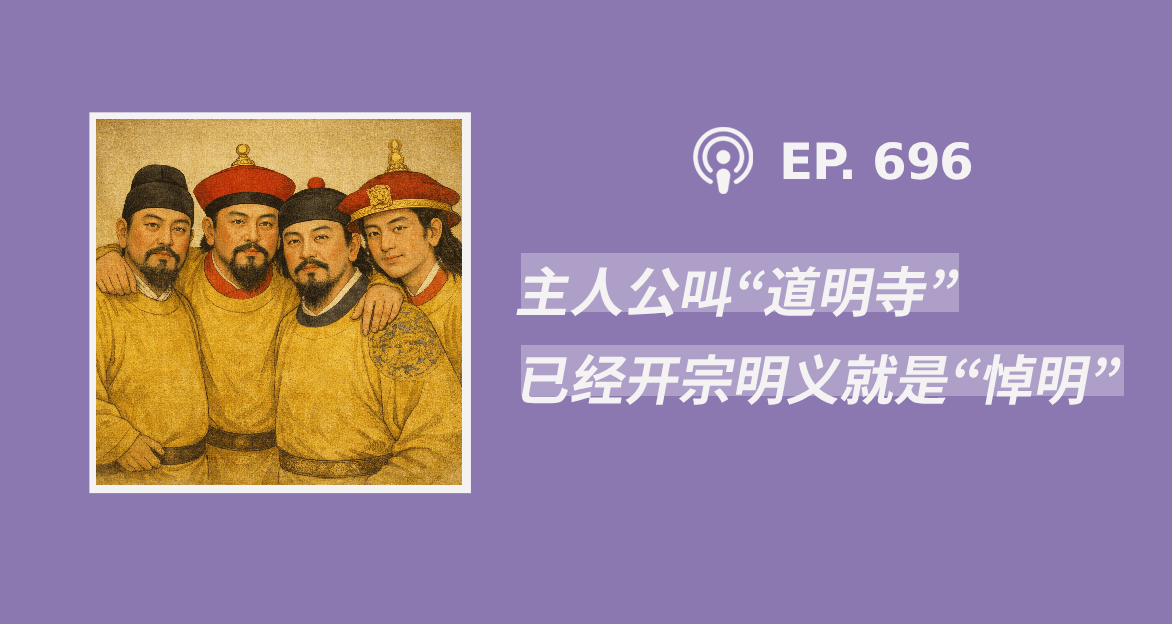译者 mymermaid
Ha Jin has a talent for first lines. Consider these, from his latest novel, “Nanjing Requiem”: “Finally Ban began to talk. For a whole evening we sat in the dining room listening to the boy.”
在哈金最新的小说《南京安魂曲》中,他的描述如同他亲身经历一般,触目惊心的场景和苦难的人生纷至沓来。“本顺总算开口说话了。我们聚在餐厅里,听那孩子讲了整整一晚上。”

We do not know who Ban is, why he should have taken so long to speak or why his story has so compelled his as yet unknown audience. As he tells that story, we plunge abruptly into the horrors of the Japanese occupation of Nanjing, then the capital of China’s Nationalist government. It is December 1937. Ban is a Chinese teenager, a boy seized while on an errand for his American employer and forced to serve as coolie to a band of Japanese soldiers who are looting, pillaging and murdering their way across the city, with Ban a terrified witness to their atrocities.
我们不知道本是什么人,为什么他的故事讲这么久,为什么他的故事让他及观众那么的压抑。当他开始叙述时,我们一下子就陷入日军侵占民国首府南京的恐慌中。1937年12月,在一次为美国雇主做事的时候本被抓了,并被逼为一帮日本人做苦力,当时本还只是个10几岁的孩子。这帮日军士兵在这个城市肆意杀伤抢劫,而本在惊恐中目睹了日本军队的暴行。
Equally abruptly, the novel then takes us back to the previous month, to the frantic preparations for an evacuation of the government to Chongqing, following the retreating forces of Chiang Kai-shek. For the civilians who will be left behind, a safety zone is hastily organized. Madame Chiang’s piano is loaded into a truck and left for safekeeping in the institution at the heart of Ha Jin’s narrative, Jinling Women’s College.
陡然间,这小说把我们带回到了一个月前,在蒋介石的命令下,南京政府在仓促准备中撤离到重庆。来不及撤离的百姓被安置在一片匆忙建立的安全区。蒋夫人的钢琴被装上了卡车,运往在金陵女子学院保管,这个学院就是哈金小说的中心。
This is fiction, but fiction that draws heavily on the historical record and in which many of the characters actually lived the events described. The narrator, Anling, a middle-aged Chinese woman, may be Ha Jin’s invention, but she serves as assistant to a well-documented real-life character, Minnie Vautrin, an American missionary from Illinois who served as acting head of Jinling College. Vautrin also figures in Iris Chang’s best-selling account, “The Rape of Nanking,” one of the inspirations for Ha Jin’s portrait of the doomed city.
《南京安魂曲》是一部小说,但大部分情节来自史实 ,并且小说中的许多人物真实存在并且亲历了这场灾难。叙述人安玲,一个中国的中年妇女,明妮·魏特林的助理,可能是哈金虚构出来的,但明妮·魏特林是有史实记载的真实人物,她是来自伊利诺伊州的美国传教士,金陵女子学院院长,在激发哈金描写这个悲惨的城市的灵感来源之一的张纯如畅销书《南京大屠杀》中也有她的影子。
When Chiang Kai-shek abandoned Nanjing to the Japanese, a few Western nationals chose to remain. The Americans who stayed were mostly missionaries, among them the formidable Minnie Vautrin. Also present was John Rabe, the German representative of Siemens in Nanjing, a member of the Nazi party who led the extraordinary effort to set up the safety zone in which Jinling College and similar institutions became refugee camps, tenuously protected by the presence and personal courage of a tiny group of foreigners. It is to them that we largely owe the documentation of the rape, pillage, arson and murder that followed.
当南京沦陷,蒋介石弃城逃亡的时候,一群西方人却选择了坚守。大部分留下来的美国人都是传教士,其中就有大义凛然的明妮·魏特林。他们推举了约翰·拉贝为主席,拉贝是德国西门子公司驻南京商务代表,纳粹党党员,他竭尽全力建立了安全区,在南京沦陷后,成为了难民救济所。正是因为他们的出现以及大无畏的精神,在那个人间地狱,苦难的同胞才有了一个暂时栖身的庇护之所。正是因为有了他们,日军烧杀抢掠的暴行才得以揭露。
As a novelist, Ha Jin brings a cool, spare documentary approach to this rich trove of material. His narrative centers on Jinling, an attractively landscaped campus in the heart of the city. The college itself becomes a character, the early hope of its founders that it would be a premier seat of learning as much despoiled by the war as are the lives of those who love and labor within it. The college represents humanity and civilization, repeatedly violated and nearly destroyed.
作为一个作家,哈金以一种平静的方式叙述《南京安魂曲》。哈金叙述的重点,金陵女子学院,位于市中心。这个学院本身就成了一个符号,学院初建者的设想是让其成为学习知识的高等学府,人们热爱的生活,学院里的工作,所有的一切,都被这场战争摧毁。 这里有人性的光辉,也有近乎地狱般的无尽杀戮。
Ha Jin begins with a fast-moving accumulation of horrors as some 10,000 refugees cram into Jinling, which was prepared to receive around 2,500. The safety it offers is fragile: Chinese citizens are dragged off and killed by marauding Japanese troops, and young women are attacked on the campus itself. The occupants of the college struggle to find enough food, fuel and shelter for everyone in need, living in constant fear that the Japanese will overrun the place.
一开始,触目惊心的场景就纷至沓来,10000难民涌向只能容纳2500人的金陵学院。它所提供的安全保障也是非常脆弱的:中国人被日军士兵拖出去杀害,即使学院本身也成了鬼子发泄兽欲的地方。虽然一直笼罩在日军肆虐的阴云下,但金陵学院的管理人员仍然竭尽所能地为每个人提供食物,燃料和庇护。
The Nanjing Massacre remains a highly controversial topic. Some in Japan still deny or play it down, and its re-emergence in the 1990s as a prime example of wartime barbarity has been used by the Chinese government as it constructs a highly nationalist version of its history. But Ha Jin is more interested in nuance than polemic. He shows us the Christian Japanese officer who brings supplies for the refugees; the Nazi who saves a quarter of a million Chinese; the Chinese worker who admits that, under torture, he made a false accusation of collaboration against two Americans from the Red Cross; the Chinese doctor, consumed by self-loathing because of his association with the Japanese, who helps Vautrin rescue Chinese prisoners.
南京大屠杀仍然是一个极具争议的话题。有部分日本人仍在极力诋毁和否认南京大屠杀,在20世纪90年代,南京大屠杀被再次提起,中国历史上,南京大屠杀被中国政府作为法西斯罪行的主要例证。但是哈金更多的是关注细微之处,而不是争议本身。他在书中写到,有信仰基督教的日本军官给难民送去补给;有纳粹党徒拯救了几十万中国民众;有中国劳工不堪折磨,作伪证陷害两个红十字的美方工作人员;也有帮助魏特琳救助民众的中国医生,因曾与日军合作而愧疚自杀。
Ha Jin also shows us how the family of Anling, the narrator, is torn apart — with a son-in-law fighting in the Nationalist army, a husband who still admires the Japan in which he once studied, an only son drawn into serving in the army of occupation because of his love for a Japanese woman.
哈金描述了故事的讲述者,安玲一家的遭遇,在国军服役的女婿,曾在日本留学并对日本有着敬仰之情的丈夫,唯一的儿子因为取了日本妻子,战争期间被迫加入日军来到中国。
Ha Jin also reminds us that heroism carries its own heavy price. Minnie Vautrin was to die by her own hand, burdened with guilt over those she had failed to save. This emotional turmoil is personified in the character of Yulan, a young woman who goes mad after being raped by the Japanese and accuses the missionaries of collaboration. Vautrin’s struggle to rescue Yulan doubles as a struggle for her own sanity.
同时哈金也描述了那些英勇事迹背后所需要付出的惨重代价。明妮·魏特林是自杀的,因为她身上承载了太多对那些她无力救助的人的愧疚。这种焦虑的情绪同样在玉兰身上得到了体现。小说中的玉兰,一个年轻的妇女,在被鬼子强暴后精神失常而诬陷传教士。
The novel does contain some awkward phrasing. Ha Jin writes in his second language, English, a remarkable achievement but one that demands editorial vigilance. The reader is surprised at times to find contemporary slang in the mouths of Chinese characters speaking more than 70 years ago. Early on, for example, a Chinese man seeking shelter for his family is offered a job at the college and blurts out, “For real?”
小说里也出现了一些别扭的措词。这是哈金用他的第二语言英语写的,虽然成就卓越但也要精益求精。读者有时会惊讶的发现当代人的俚语会从70多年前的中国人物的嘴里冒出来。举例来说,一个为家人寻觅庇护之处的中国男子,在他得到一个在大学工作的机会时,脱口而出道:“真的?”
This is the sort of misstep that can provide an unfortunate distraction in the course of an otherwise fine novel, a book that renders a subtle and powerful vision of one of the 20th century’s most monstrous interludes. The closing section, “The Grief Everlasting,” underscores Ha Jin’s message. There will be no happy ending here, and precious little healing.
由于这样的过失让这本小说失去了些吸引力,但其他方面都不错。它从一个微妙并有力的视角讲述了20世纪一个惨痛的灾难。哈金以“永恒的伤痛”作为结尾给读者以启示。这是个不会有快乐结局的故事,并且带来了无法治愈的伤痛。
本文由自动聚合程序取自网络,内容和观点不代表数字时代立场













